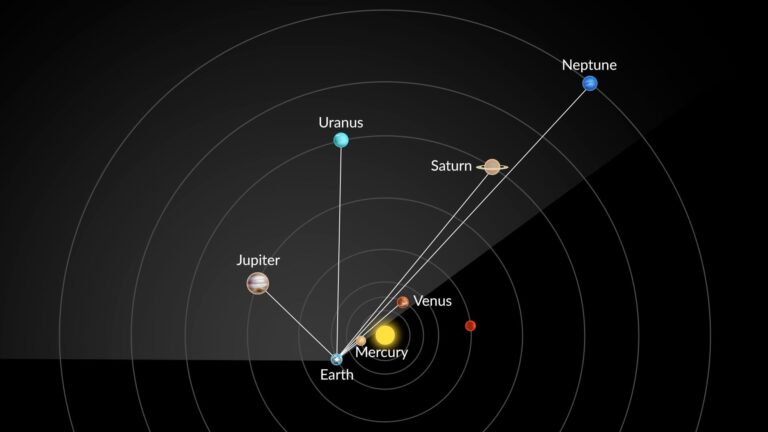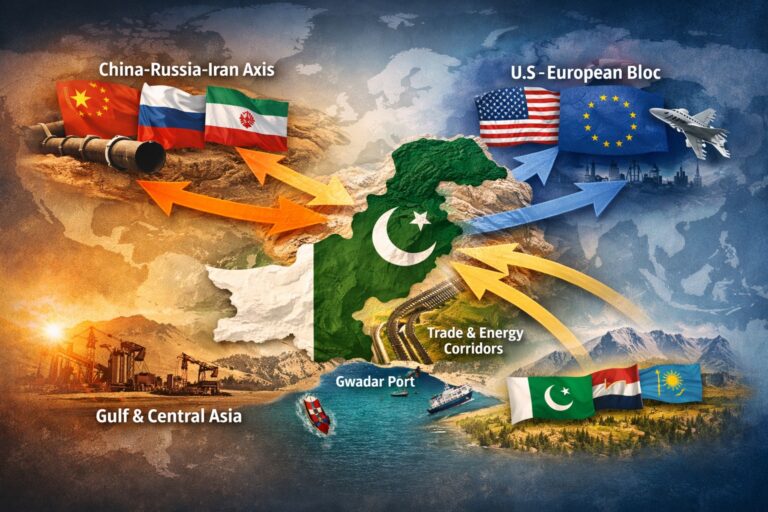China and Russia 2024: Significant Collaboration
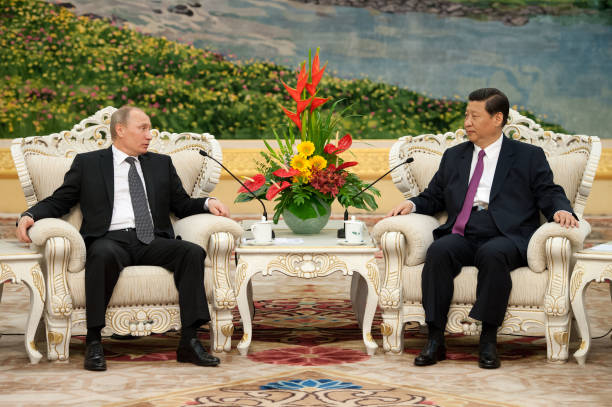
1 . The latest developments between China and Russia indicate a significant collaboration. According to US officials, China is aiding Russia in what is described as the largest defense expansion since the Soviet era. This includes support in areas such as drone and missile technology, satellite imagery, and machine tools essential for producing ballistic missiles. The US has expressed concerns over this partnership, especially in light of the ongoing conflict in Ukraine.
Furthermore, there have been reports of China and Russia strengthening their ties and working together to shape a new world order that aligns with their interests. This collaboration is seen as a move to drive changes on a global scale, with both nations aiming to influence the geopolitical landscape⁵.
It’s important to note that these developments are part of a complex international situation, and the information is based on the latest available reports and assessments. For the most current and detailed information, it’s advisable to refer to the latest news from reliable sources.
2 . The implications of the military collaboration between China and Russia are multifaceted and have significant global repercussions:
- Military Production and Capabilities: The surge in exports of critical technologies from China to Russia is bolstering Russia’s military production amid the ongoing conflict in Ukraine¹. This could lead to advancements in Russia’s military capabilities and affect the balance of power in the region.
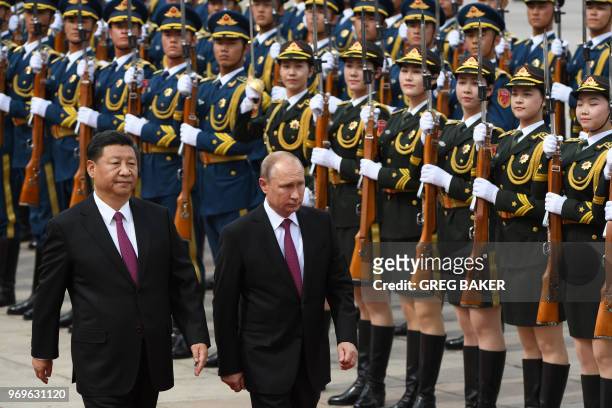
China Russia Coleboration - Strategic Balance: The partnership could alter the strategic balance, particularly in regions like Eastern Europe and the Asia-Pacific, where both China and Russia have significant interests.
- Technological Advancements: Joint R&D advancements and corporate partnerships between China and Russia in emerging technologies pose risks to the technological superiority and national security of other countries.
- International Relations and Security: The collaboration has raised concerns among Western powers, particularly with the escalation of the conflict in Ukraine². It could lead to a shift in international alliances and security dynamics.
- Geopolitical Influence: Both countries are working together to shape a new world order that aligns with their interests. This partnership could drive changes on a global scale, influencing the geopolitical landscape and challenging the current Western-dominated order.
- Defense Industrial Production: There are clear benefits for both nations in terms of defense industrial production, with improvements in operational capabilities, especially for China.
- Political Support: Military cooperation provides mutual political support on the international stage, which can be leveraged in various international forums and negotiations.
- Global Governance: Their cooperation within international institutions may challenge the norms of the U.S.-led world order and affect global governance structures¹.
- Security Alliances: The collaboration may prompt other countries to reconsider their security alliances and defense strategies to counterbalance the China-Russia partnership¹.
- Economic Shifts: As Russia shifts trade away from Europe in response to Western sanctions, there could be economic repercussions for countries traditionally allied with the West.
- Regional Stability: The increased military capabilities of China and Russia could lead to regional power shifts, potentially destabilizing certain areas or leading to an arms race².
- Diplomatic Relations: Countries may need to navigate a more complex diplomatic landscape as they engage with China and Russia, who are seeking to establish a new world order.
These developments suggest a strategic commitment by both nations to challenge U.S.-led Western hegemony and could potentially lead to a more polarized world order.
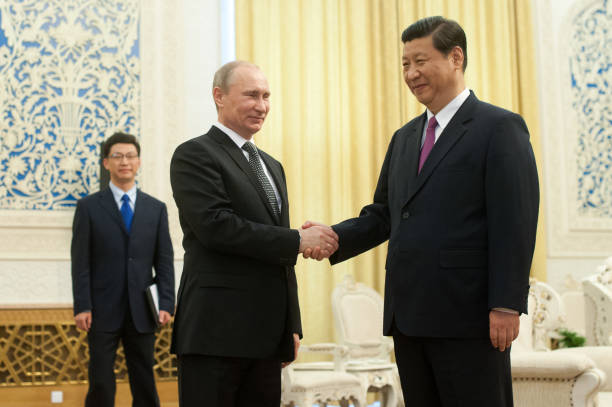
3 . The deepening military collaboration between China and Russia is likely to have a profound impact on international relations, security dynamics, and the global balance of power.
- Defense Industry Growth: The collaboration could lead to growth in the defense industries of both countries, with China providing critical technologies and machine tools that could enhance Russia’s military production capabilities.
- Trade Dynamics: The partnership may alter global trade dynamics, as Russia might increasingly turn to China for imports and exports, especially in light of Western sanctions².
- Technology Transfer: The exchange of technology, including drone and missile technology, could lead to advancements that have dual-use applications, potentially benefiting civilian industries in both countries.
- Economic Sanctions: The collaboration might affect the efficacy of economic sanctions imposed by Western countries on Russia, as China’s support could mitigate some of the economic pressures faced by Russia.
- Investment Flows: There could be shifts in investment flows, with China possibly increasing its investments in Russia, particularly in sectors related to defense and technology.
- Energy Sector: The partnership may also have implications for the energy sector, as Russia is a major energy supplier to China, and this relationship could deepen with increased military cooperation.
- Space Exploration: Joint ventures like the China-Russia lunar base cooperation agreement could have economic implications in terms of space exploration and the potential exploitation of lunar resources.
Overall, the economic implications of the China-Russia military collaboration could reshape certain aspects of the global economy, particularly in terms of defense production, trade, technology transfer, and energy supply.
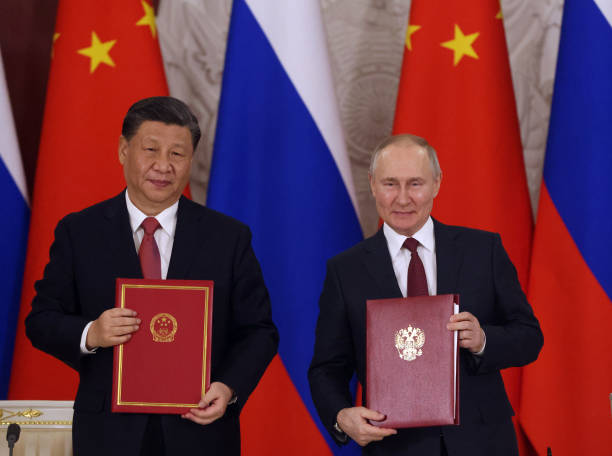
4 . The Varied and Complex Perspectives of Other Major Powers on the China-Russia Military Collaboration :
- United States: The U.S. views the partnership with concern, particularly in light of the ongoing conflict in Ukraine. U.S. officials have warned that the burgeoning China-Russia security alliance poses a significant threat to both Europe and the Pacific, the largest since World War II. The U.S. is also wary of the technological and military capabilities that this partnership could bring to both nations.
- European Union: The EU is likely to be apprehensive about the partnership, given its potential to shift the balance of power and the implications for security and trade in Europe, especially with the ongoing situation in Ukraine¹.
- Asia-Pacific Nations: Countries in the Asia-Pacific region may view the partnership with caution, as it could bolster China’s military posture in the region and affect regional security balances².
- Other Global Powers: Other global powers, including India, Japan, and Brazil, are likely to closely monitor the partnership, assessing how it might influence their strategic interests and regional dynamics¹.
Overall, the partnership is seen as a strategic move by China and Russia to challenge U.S. hegemony and reshape the international order, which has prompted a range of responses from other major powers, from concern to strategic recalibration¹².
5 . The Military Collaboration between China and Russia has Specific Implications for the Ongoing War in Ukraine:
- Military Support: China’s backing, particularly in the form of drone and missile technology, satellite imagery, and machine tools, is aiding Russia’s war effort in Ukraine. This support is part of Russia’s largest military buildup since the Soviet era.
- Economic Assistance: China’s economic assistance, especially in the defense industrial base, is significant for Russia as it continues its war against Ukraine. This support allows Russia to expand its weapons manufacturing at a large scale.
- Strategic Impact: The collaboration could impact the strategic calculus of the conflict, potentially affecting the duration and intensity of the war. It may also influence the international response and the dynamics of the conflict.
- Diplomatic Relations: The partnership may affect diplomatic relations, with China’s policy being to secure a ceasefire and act as a mediator, while also maintaining relations with all parties involved, including Russia, Ukraine, the United States, and Europe.
- Global Perception: The extent of China’s support for Russia could alter the global perception of the conflict, with some viewing China’s neutrality as diminishing and its logistical support for Russia as a game-changer for the war.
These implications underscore the complex nature of the conflict and the role that international partnerships can play in shaping its outcomes.
6 . The United States and NATO Open Support of Ukraine’s War against Russia:
The United States and NATO have been openly supporting Ukraine in its conflict with Russia, emphasizing Ukraine’s right to self-defense and sovereignty. They have provided various forms of assistance, including military aid, economic support, and political backing. This support is based on the principles of national sovereignty, territorial integrity, and the right of nations to choose their security arrangements.
The criticism of the China-Russia military collaboration by the US and NATO is rooted in concerns over the implications for global security and the balance of power. The US and NATO view the partnership as a strategic move by China and Russia to challenge the Western-led international order and potentially destabilize the current global security architecture¹².
The US and NATO’s support for Ukraine is framed within the context of responding to what they consider an unprovoked and unjustified act of aggression by Russia. In contrast, they view the China-Russia collaboration as a broader strategic alignment that could empower both nations to counter Western influence and reshape the international system.
It’s important to note that international relations are complex, and nations often have to navigate a landscape of competing interests and principles. The US and NATO’s stance is that their support for Ukraine is a matter of upholding international law and supporting a democratic nation under attack, whereas they see the China-Russia collaboration as a challenge to the established international order that could have far-reaching consequences beyond the immediate conflict in Ukraine¹².
7. The Likelihood of Other Countries Joining or Openly Supporting the China-Russia Military Collaboration:
Depends on various geopolitical factors and national interests.
- Countries with Close Ties to China and Russia: Nations that have historically maintained close relations with China and Russia may be more inclined to support or join the collaboration, particularly if they share similar strategic interests or face common challenges.
- Nations Opposed to Western Policies: Countries that have grievances against Western policies or sanctions may view the China-Russia partnership as an alternative to Western influence and could express support as a means to counterbalance Western power.
- Non-Aligned Countries: Some non-aligned countries, especially those seeking to maintain a balance between major powers, might find it advantageous to support the collaboration, at least on specific issues, to leverage their position in international affairs.
- Strategic Partners: Nations that engage in strategic partnerships with China or Russia for economic or security reasons might also be likely to support the collaboration, particularly if it aligns with their national interests.
It’s important to note that international politics are fluid, and the decisions of countries to join or support such collaborations will be influenced by the evolving global landscape and their own strategic calculations. The actual list of countries that might support the China-Russia collaboration would be based on real-time diplomatic developments and alignments.
Source:
(Photo by Ed Jones – Pool/Getty Images)
(1) China supporting Russia in massive military expansion, US says. https://www.theguardian.com/…/china-supporting-russia….
(2) China and Russia: Xi and Putin’s plan for a ‘new era’: How to read …. https://english.elpais.com/…/xi-and-putins-plan-for-a….
(3) Russia-China ties enter ‘new era’ as Xi meets Putin in Moscow. https://bing.com/search?q=latest+developments+China+Russia.
(4) China’s Surging Exports of Critical Technologies Bolster Russia’s Military Production Amid Ukraine War, US Intelligence Claims. https://www.btimesonline.com/…/chinas-surging-exports….
(5) Russia and China Warn NATO To Stay out of Asia. https://www.msn.com/…/russia-and-china-warn…/ar-BB1lp4Oj.
(6) Russian-Chinese Military Cooperation | CNA. https://www.cna.org/…/russian-chinese-military-cooperation.
(7) Understanding the Broader Transatlantic Security Implications of … – CSIS. https://www.csis.org/…/understanding-broader….
(8) The Rising Threat of China and Russia’s Deepening Technological. https://fsi.stanford.edu/sipr/technological-partnership.
(9) The Strategic Implications of the China-Russia Lunar Base Cooperation …. https://thediplomat.com/…/the-strategic-implications…/.
(10) Russian-Chinese Military Cooperation | CNA. https://www.cna.org/…/russian-chinese-military-cooperation.
(11) How China and Russia Have Helped Foment Coups and the Growing …. https://www.cfr.org/…/how-china-and-russia-have-helped….
Source:
(12) China fills Russia’s critical war gaps, the US says. https://www.msn.com/…/china-fills-russia-s…/ar-BB1lxjfq.
(13) Russia-Ukraine War: China’s Vanishing Neutrality – The Diplomat. https://thediplomat.com/…/russia-ukraine-war-chinas…/.
(14) Joint Statement on the U.S.-Ukraine Strategic Partnership. https://www.whitehouse.gov/…/joint-statement-on-the-u…/.
(15) How Advanced Is Russian-Chinese Military Cooperation? https://warontherocks.com/2023/06/29000/.
(16) Ukraine war: What support is China giving Russia? – BBC News. https://www.bbc.co.uk/news/60571253….
(17) Combined Russian and Chinese military power will approach, but not …. https://www.militarytimes.com/…/combined-russian-and…/.
If you enjoyed this article, please like and share it with your friends, and don’t forget to subscribe for more great content!
Iran-Israel Conflict: Iran’s Massive Retaliatory Strike Against Israel 14,April

